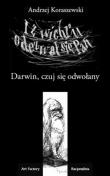
|
Various topics » Ecohumanism Ecohumanism, ed. Robert B. Tapp [Prometheus, 2002, ISBN 1-57392-937-9, 333 pp., hc, $29] Only a handful of Ecohumanism's eighteen chapters make any useful or valid points. David Shafer — after spelling out the certainty of the extermination of the universe in a few billion years either by heat loss through never-ending expansion or „inconceivably high temperatures not seen since the Big Bang" in a gravitation-induced Big Crunch — writes: „So, for the Humanist, time is not on our side, and unless we are permanently lucky, sooner or later the likelihood is that we, and all life with us, will yield up forever the joys of existence in favor of total extinction (127)." But why should we rush it? In other words, Earth will be uninhabitable in billions of years, but that is no excuse for making it uninhabitable by air, water and population pollution within the foreseeable future. Similarly, Gerald Larue echoes Thomas Malthus and Isaac Asimov in making the point (189-190) that „Nevertheless it has now become clear that the irresponsible breeding of children, without plans or means for their support and education, is both immoral and unethical and contributes to the spread of hunger and malnutrition, particularly among women and children and the aged. Two hundred million children go to bed hungry every night. There is no estimate of how many elderly go to bed hungry each night.... Without education and without the widespread use of birth control, world population will continue to expand and the number of impoverished elderly will grow proportionately." Unfortunately, those are not the chapters with which this book begins, and there is a serious danger that many readers will give up before reaching them. I have no idea whether Ecohumanism's first four chapters are written in psychobabble, sociobabble, theobabble, Faculty-of-Education doubletalk, or Etruscan. Perhaps they were intended as a primer for Gibberish 101? Ninety percent of the book's value is to be found in the chapter, „The Impact of Population on Ecology" by John M. Swomley. He writes (167-168), "The World Health Organization estimates that 585,000 women die each year during pregnancy and childbirth. 'The death toll,' according to World Watch, 'underestimates the magnitude of the problem. For every maternal death as many as thirty women sustain oftentimes crippling and lifelong health problems related to pregnancy.'Moreover, many of these deaths and lifelong health problems could have been prevented by access to family planning services and safe, legal abortions. „It is not only the deaths of thousands of women that make this a culture of death, but the projected deaths of some 23 million Africans because of the spread of HIV and the failure of governments to control it. The Vatican has also strongly opposed any funding of condoms to prevent the spread of these diseases." After acknowledging that a big reason for continuing population growth is that more than forty percent of the present population are in or entering their prime breeding years, Swomley argues (165-166) that "A second reason is the Vatican's persistent campaign for more births. This is evident in its worldwide opposition to contraceptive birth control and to abortion, but also in the direct appeals of the Pope.... In the early 1980s, Pope John Paul II came to Nairobi and counseled Kenyans, whose population at that time was the fastest growing in Africa, probably in the world, to 'be fruitful and multiply.' The New York Times reported, 'In preparation for next month's Earth Summit in Rio de Janeiro, Vatican diplomats have begun a campaign to try to insure that the gathering's conclusions on the issue of runaway population growth are not in conflict with Roman Catholic teaching on birth control.' Time magazine reported:'In response to the concerns of the Vatican, the Reagan administration agreed to alter its foreign aid program to comply with the church's teaching on birth control.'President Bush also blocked all U.S. funding for the United Nations Population program." Ecohumanism, and particularly Swomley's chapter, makes clear that the greatest crime against humanity ever committed, the intentional furthering of the human race's inability to feed itself as a consequence of overpopulation, can be laid directly at the feet of a handful of identifiable criminals: the feebleminded gangster in the Vatican, and the succession of Republican morons in the White House, who between them have already murdered more than twenty million human beings by starvation, malnutrition and disease, and if not stopped will double or triple that number. Norman Spinrad wrote in Greenhouse Summer, "Greater than the courage to do right in the face of danger or adversity was the courage to commit a lesser evil to prevent a greater. And if the evil that needed preventing was the ultimate one, the death of all living things, then any means were justified to accomplish that end — anything at all. "If there is no other way to save the human race from extermination, and certainly I can see no other, then to send the message that anthropocide will not be tolerated, it may be necessary to put Karol Wojtyła and George W. Bush on trial before the World Court for attempted anthropocide. Is there another solution? Perhaps. Or perhaps not. Editor's note:In the Jan/Feb 1998 issue of the American Rationalist, I wrote the following: "It is time to abandon Protagoras' silly dictum and move on to a higher, biocentric, form of humanism. Perhaps we should call it ecohumanism and forge an alliance with secular environmentalists. Perhaps this alliance should be our political platform for the 21st century when the current millennial madness subsides and a measure of sanity is restored." At the time I thought I was coining a new word, "ecohumanism," which I believed would best describe a new stage in the evolution of humanist ideology. Subsequently, I ran an AR column under this coinage, hoping to induce humanist writers to offer humanist perspectives on environmental problems. Only Marge Mignacca and Sarah Gilmer made meaningful contributions, so regrettably I had to phase out the project. (My interview of David Foreman, co-founder of Earth First!, remains unpublished.) I don't know if editor Robert Tapp picked up where AR left or whether he independently developed the idea of ecohumanism. What I do know now is that with his book, ecohumanism once again has got off to a bad start. — Kaz Dziamka, Editor * [Published in the American Rationalist, Jan/Feb 2003]
« Ecohumanism (Published: 09-02-2004 )
page 3248 |
|||||||||||||||||||||||||||||||||||||||||||||||||||||||||||||||||||||||||
| [ Cooperation ] [ Advertise ] [ Map of the site ] [ F.A.Q. ] [ Store ] [ Sign up ] [ Contact ] The Rationalist © Copyright 2000-2018 (English section of Polish Racjonalista.pl) | ||


